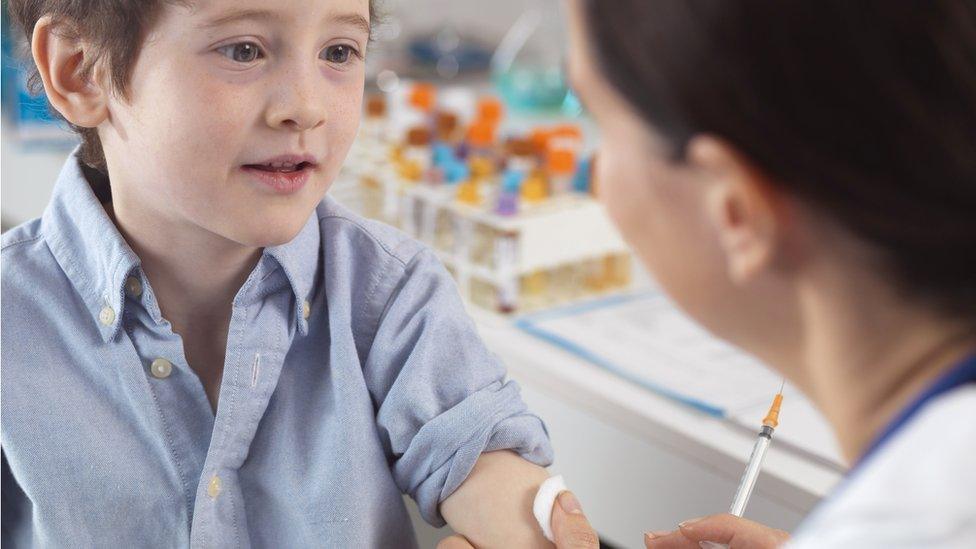Parents urged to stay up-to-date with children's vaccinations
- Published

Parents are being urged to make sure their children are up-to-date with all their routine vaccinations.
The Local Government Association said high vaccine uptake could prevent infections and stop pressure being piled on the NHS.
is continuing as normal while jabs given in school are being rescheduled.
Vaccines protect children against serious diseases including measles, meningitis and whooping cough.
The LGA, which represents councils in England and Wales, said it was expecting an influx of children needing vaccinations when schools return in September.
It called for the government to set out a plan to ensure children get the vaccinations they need and to provide funding to allow GPs, clinics and schools to cope with demand.
Research by Public Health England found that during the first three weeks of lockdown, there was a 20% drop in the number of MMR (measles, mumps and rubella) vaccines given to young children. Numbers then rose again in late April.
There was little impact on uptake of other vaccines, and further analysis by PHE suggests children were vaccinated at normal levels in May and June.
'Essential protection'
Dr Mary Ramsay, head of immunisation at PHE, said it was "vital" that parents knew that routine vaccinations were still available and made sure their children attended appointments.
She said this was particularly the case for diseases such as measles, where high vaccination rates were needed to prevent outbreaks.
The LGA said a "national effort" to vaccinate children and young people was required to relieve pressure on the health service and avoid preventable diseases.
Judith Blake, chairwoman of the LGA's Children and Young People Board, said: "Vaccines are an absolutely essential part of our children's health and wellbeing, so if you or any member of your household are not displaying symptoms of coronavirus and are not self-isolating, vaccinations should happen as normal.
"Local services are working hard to ensure that people including babies, children and pregnant women still receive their routine vaccinations - they provide essential protection against potentially life-threatening diseases."
- Published2 May 2020